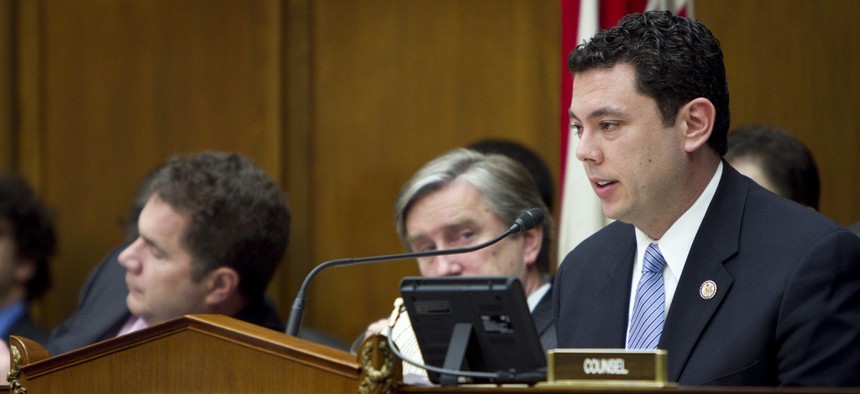Congressman Demands Names of Local Government Staffers, Hints at Prosecution

Rep. Jason Chaffetz Courtesy Office of Rep. Jason Chaffetz
Conflict over the introduction of legalized marijuana in the nation’s capital has strained the complicated relationship between the D.C. government and Capitol Hill.
Here’s something your municipal government likely doesn’t have to worry about: Having members of Congress looming over local affairs and threaten to prosecute the mayor and city employees.
But that’s the situation the District of Columbia, a federal enclave with limited home rule powers that gives the national legislature and president of the United States a hand in blocking local legislation.
Drug policy has always been a point of contention in the relationship between the U.S. Capitol and the Wilson Building, the seat of the D.C. government thirteen blocks away on Pennsylvania Avenue.
For many years, Republicans in Congress, for instance, blocked local budget appropriations needed to count the votes of D.C.’s 1998 voter initiative on medical marijuana.
When the votes were finally allowed to be counted in 2009, the proposal was found to have passed at a 69 percent margin.
But the battles over marijuana use in the nation’s capital are not over yet—local voters OK’d legalized limited personal use of marijuana last year—and the rhetoric from Capitol Hill has grown more acrimonious.
Jason Chaffetz, who chairs the House committee with jurisdiction over the District government, wrote a letter to D.C. Mayor Muriel Bowser last month warning her from implementing Initiative 71, the voter-approved marijuana legalization measure that recently went into effect.
“You can go to prison for this,” Chaffetz said, according to The Washington Post. “We’re not playing a little game here.”

D.C. Mayor Muriel Bowser (Image via D.C. Mayor's Office)
Bowser, who took office in January, didn’t back down.
While a member of Congress might threaten jail time for a local official, as a legislator, they don’t actually have any prosecutorial power.
But Chaffetz’s committee continues to keep the pressure on.
At a Tuesday breakfast meeting, Washington City Paper reported, members of the D.C. Council discussed whether to comply with the congressional committee's demand for a list of all D.C. government employees who worked on the implementation of Initiative 71 in addition to their salaries.
According to City Paper:
The not-so-veiled threat in Chaffetz's letter is that staffers and councilmembers could be prosecuted for breaking the Anti-Deficiency Act, which prohibits spending unappropriated federal money.
But councilmembers decided not to respond to Chaffetz’s letter “pending more clarification on what the Utah congressman wants,” according to City Paper.
NEXT STORY: El Paso Makes Filling Potholes Look So Easy






